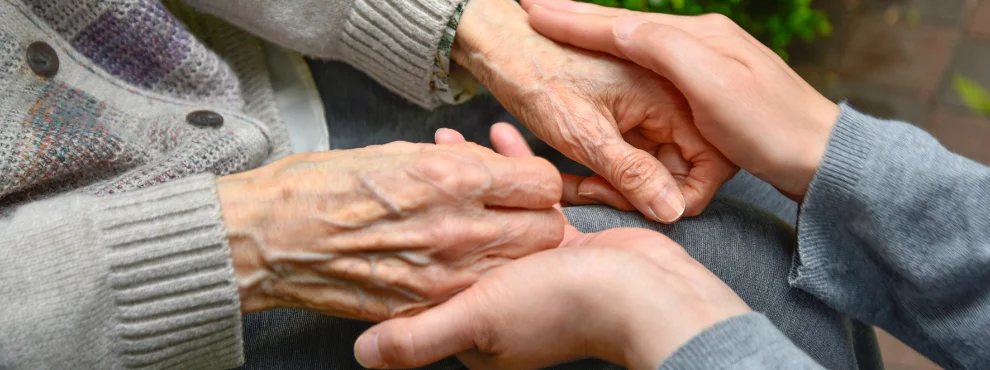Dementia has a gender: New research project sheds light on differences in care for women and men
Witten/Herdecke University and German Alzheimer's Association launch research project on gender-specific care

Women are not only affected by dementia more often than men, they also show different symptoms and deal with the disease differently. These differences have noticeable consequences for everyday life - and for care. The new "ParGenDA" research project by Witten/Herdecke University (UW/H) and the German Alzheimer's Association (DAlzG) aims to clarify what those affected and carers really need. The project is funded by the Federal Ministry of Research, Technology and Space.
Research that starts with people
Over the course of 18 months, the Witten-based care scientists will work together with people with dementia, family carers, their interest groups and experts to identify and prioritise key questions on gender-specific differences that have so far been neglected in research and care. To this end, the participants will complete a questionnaire during the course of the project; the topics range from everyday stress to the emotional and social consequences of dementia. The results are compared with current studies. In a workshop at the end of the project, the participants will draw up a list of the ten most important questions on gender-sensitive psychosocial support that have not yet been answered scientifically.
"Gender-sensitive medicine as a keyword and the question of gender-specific therapies have now arrived in the consciousness of society and science," explains Prof Dr Margareta Halek from the UW/H. "The relationship to caring for people with dementia is less clear: there are indications that women show depressive or perception-altering symptoms more frequently, while men tend to be more restless."
The care itself also poses different challenges depending on gender, Halek continues: "Women usually take on the care of people with dementia - as wives, daughters or daughters-in-law. Psychosocial services are therefore geared more towards women, while men are less visible as carers. In care research, all of these gender differences have not yet been sufficiently analysed or included in new developments. Accordingly, there is a lack of gender-sensitive proposals for care practice."
Agenda for research and a targeted health policy
The research questions identified should be incorporated into future studies, funding programmes and health policy strategies and thus close real gaps in care. In the long term, "ParGenDA" can help to anchor gender-sensitive aspects in practice, for example in the training of people in healthcare professions or through new psychosocial services.
"We need research that is close to the reality of the lives of those affected," says Saskia Weiß, Managing Director of the DAlzG. "Only those who ask the right questions can find the right answers - and optimise care so that it really helps people."
Further information:
ParGenDA is the abbreviation for "Partnershipfor gender-sensitive psychosocial interventions for people with dementia and their carers". The 18-month research project is funded by the Federal Ministry of Research, Technology and Space and coordinated by Witten/Herdecke University. The project partner is the German Alzheimer Society e. V. Dementia self-help organisation. A steering group made up of people with dementia, family carers, care and medical professionals and their interest groups will accompany the entire process - from the development of questions to prioritisation.
Photos for download
Contact person

Svenja Malessa
Press Officer
Administration | Communication & Marketing
Alfred-Herrhausen-Straße 48
58455 Witten
Room number: 2.F05
